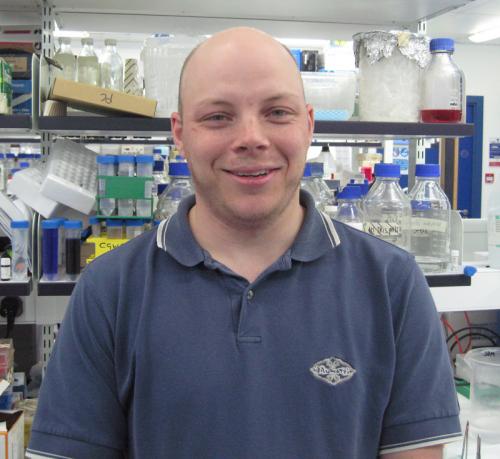
New mechanism for preventing autoimmune disease discovered
Kris Clark, a postdoc in Philip Cohen's lab has recently discovered a key role for the IÃ_ºB kinase (IKK)-related protein kinases (IKKÃ_µ and TBK1) in suppressing the activities of the canonical IKKs (IKKÃ_± and IKKÃ_Â_) when the innate immune system is activated. This regulatory device is needed to prevent the hyper-phosphorylation of the transcription factor NFÃ_ºB which, if left unchecked, would lead to the overproduction of inflammatory mediators and to the development of chronic inflammatory or autoimmune diseases, depending on cell context (Biochem. J., 2011, 434, 93-104). Now, in a follow up paper (Proc. Natl. Acid Sci USA, 2011) Kris has identified a protein called TANK as a key player in mediating this 'crosstalk' between the different IKK family members. He found that the interaction between the canonical IKKs and the IKK-related kinases was abolished (IKKÃ_µ) or reduced (TBK1) in macrophages from TANK-deficient mice and that, as a consequence, the activation of the IKK-related kinases did not occur (IKKÃ_µ) or was reduced (TBK1). This resulted in enhanced activity of the canonical IKKs and increased phosphorylation of their substrates. In work that is yet to be published, the laboratory have obtained evidence that the IKK-related kinases may limit the strength of innate immune signalling in additional ways. Taken together, their findings explain why TANK-deficient mice overproduce inflammatory cytokines and develop autoimmune nephritis as they age.

